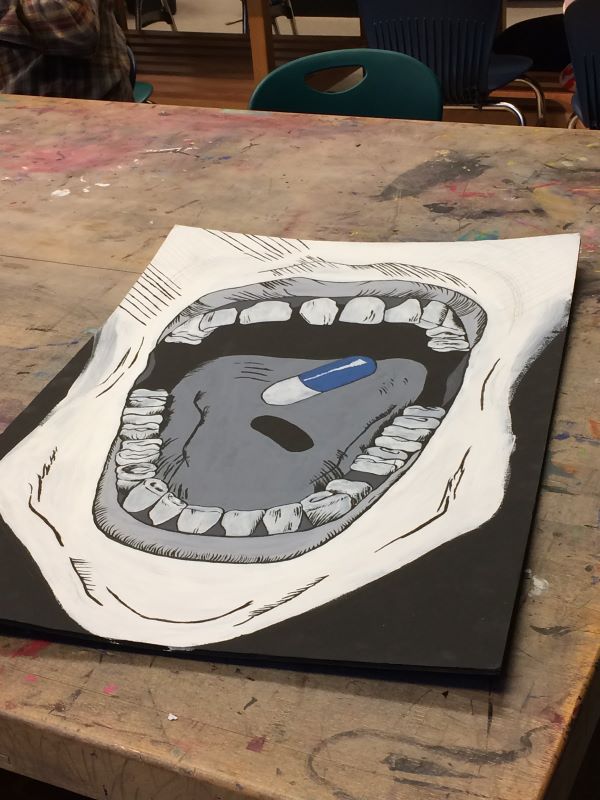Marie Sequeira’s Painting Highlights Corruption in the Pharmecutical, Health Industry
“Untitled,” A Painting by Marie Sequeira That Is Still In Progress, Photo Courtesy of Kristina Schwarzkopf
Activism at South Lakes comes in many different forms. Senior Marie Sequeira uses her art as a creative way to draw attention to an ongoing problem. She is currently creating a painting that sheds light on how pharmaceutical companies exploit ordinary people that struggle with mental or physical health problems. She explained that medical practitioners receive big profits if they promote expensive medicines, such as treatments for depression, ADHD, schizophrenia, and other mental health disorders.
“Rather than giving sufferers the best possible medication for their particular problem, doctors can be bribed to prescribe medications that are addictive, pricey, and have terrible side effects,” said Sequeira, “Many people in the U.S. are put off by this, and some refuse treatment because they fear that doctors and pharmacists will take advantage of them.”
Approximately 50 million Americans (one in five adults) are on prescribed psychiatric drugs, according to a report by Medco Health Solutions, Inc. In fact, the Centers for Disease Control (CDC) deemed prescription drug abuse as “the fastest growing drug problem in the United States.” The CDC’s research indicates that the recent increase in opioid analgesics (a type of prescription drug) has resulted in more drug overdose deaths than cocaine and heroin combined.
Charlie Ornstein, the senior editor of ProPublica (an independent, nonprofit newsroom) explained that the increase in prescription drug use and abuse is linked to pharmaceutical companies paying physicians to promote their medications. “It’s illegal to give kickbacks to a doctor to prescribe drugs, but it is legal to give money to doctors to help promote [a] drug. Some doctors make tens of thousands or hundreds of thousands of dollars a year beyond their normal practice just for working with the [pharmaceutical] industry,” Ornstein said.
Did You Know? The Physician Payments Sunshine Act of 2009 (part of the Affordable Care Act) requires pharmaceutical companies to disclose any payments to doctors that are greater than $10.
















